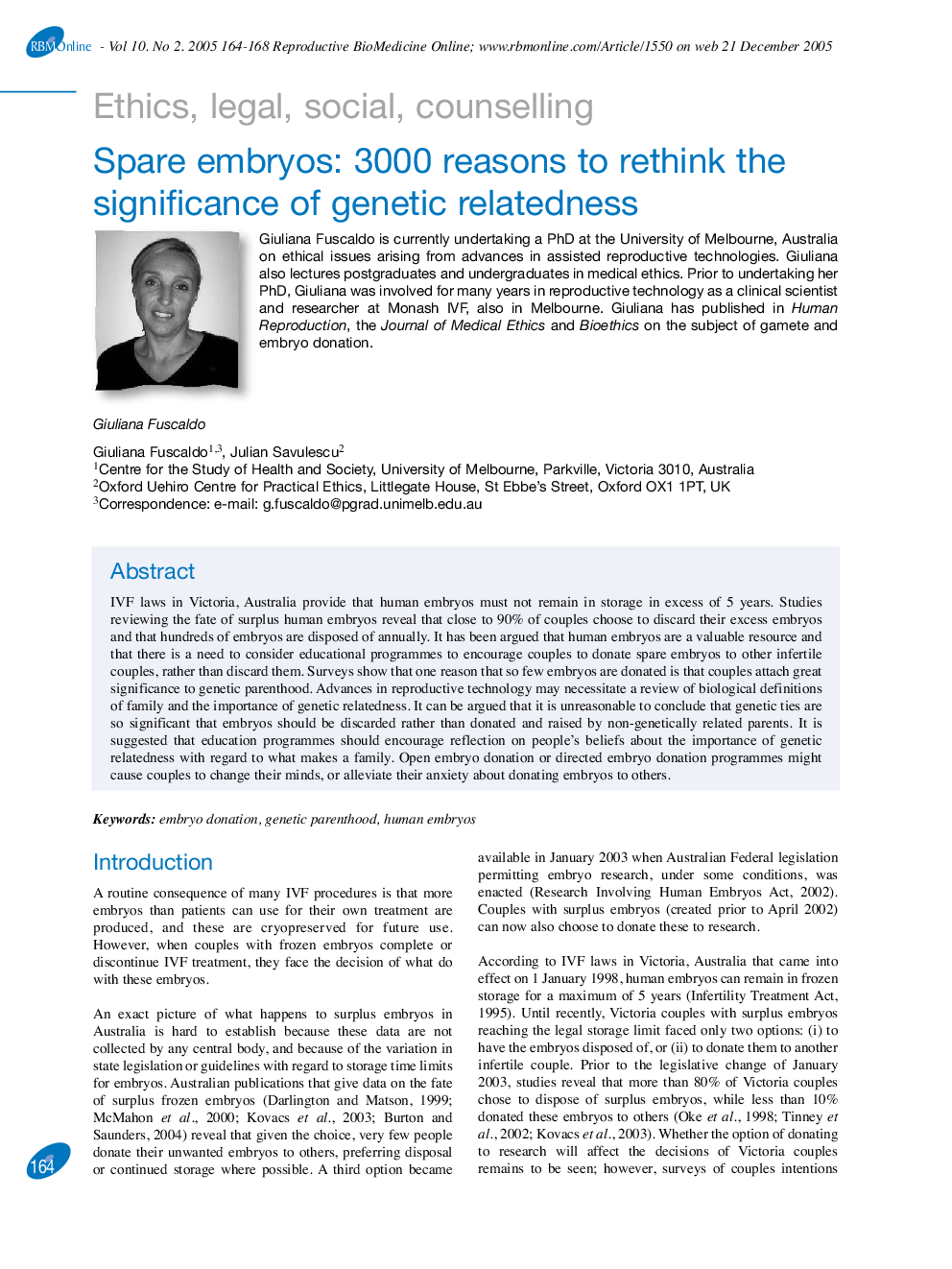| Article ID | Journal | Published Year | Pages | File Type |
|---|---|---|---|---|
| 9334890 | Reproductive BioMedicine Online | 2005 | 5 Pages |
Abstract
IVF laws in Victoria, Australia provide that human embryos must not remain in storage in excess of 5 years. Studies reviewing the fate of surplus human embryos reveal that close to 90% of couples choose to discard their excess embryos and that hundreds of embryos are disposed of annually. It has been argued that human embryos are a valuable resource and that there is a need to consider educational programmes to encourage couples to donate spare embryos to other infertile couples, rather than discard them. Surveys show that one reason that so few embryos are donated is that couples attach great significance to genetic parenthood. Advances in reproductive technology may necessitate a review of biological definitions of family and the importance of genetic relatedness. It can be argued that it is unreasonable to conclude that genetic ties are so significant that embryos should be discarded rather than donated and raised by non-genetically related parents. It is suggested that education programmes should encourage reflection on people's beliefs about the importance of genetic relatedness with regard to what makes a family. Open embryo donation or directed embryo donation programmes might cause couples to change their minds, or alleviate their anxiety about donating embryos to others.
Keywords
Related Topics
Health Sciences
Medicine and Dentistry
Obstetrics, Gynecology and Women's Health
Authors
Giuliana Fuscaldo, Julian Savulescu,
